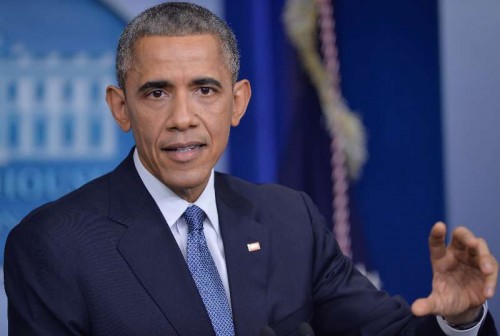
US President Barack Obama is going to urge European Union (EU) leaders to continue sanctions against Russia at the upcoming Group of Seven (G7) meeting, officials said.
“We are particularly concerned about the uptick in fighting that we’ve seen over the last 24 to 48 hours in Ukraine,” Charles Kupchan, the National Security Council’s senior director for European affairs, said during a conference call on the President’s travel to Germany for a G7 summit, Xinhua news agency reported.
He said it is important for the G7 leaders to discuss how to implement the Minsk agreement, to “put pressure on Russians” and “forge a consensus” in future responses to the situation in Ukraine.
Asked about a possible response by G7, White House deputy national security advisor Ben Rhodes said Washington’s priority was to maintain sanctions against Russia, which the US accuses of backing the rebel forces.
“I think most urgently the focus is on maintaining the unity around the sanctions effort that has had very significant consequences on the Russian economy. We have always said that we wanted to be clear that there are additional costs and consequences to further escalation by Russia,” Rhodes said.
“And it’s important, though, that that pressure is sustained, because the message has to be that this pressure is not going to go away unless we see a full implementation of a diplomatic solution,” he added.
The U.S. and its European partners have imposed several rounds of sanctions against Russia over Moscow’s annexation of Crimea and alleged support of separatists in eastern Ukraine.
More than 6,000 people have been killed in fighting that broke out in eastern Ukraine in April last year.
Obama will arrive in Germany on Sunday for the G7 summit. He will also hold bilateral meetings with German Chancellor Angela Merkel and British Prime Minister David Cameron, Rhodes said.
G7 is a group consisted of the US, Canada, France, Germany, Italy, UK and Japan.
The EU is also represented within the G7. The group used to be called G8 with Russia’s participation.
On March 2014, the group blamed Russia’s role in the Crimean crisis and voted to suspend Russia’s membership.